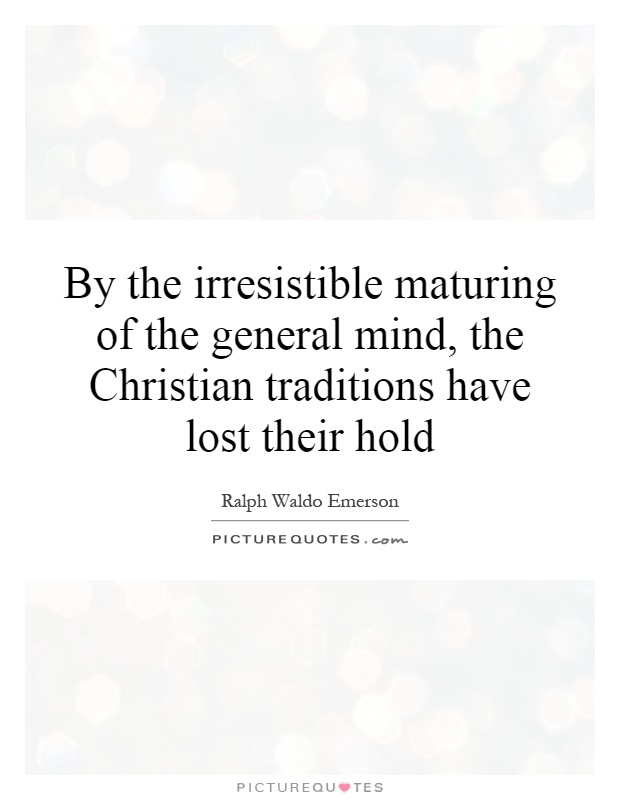By the irresistible maturing of the general mind, the Christian traditions have lost their hold

By the irresistible maturing of the general mind, the Christian traditions have lost their hold
Ralph Waldo Emerson, a prominent American essayist, lecturer, and poet, was a key figure in the transcendentalist movement of the 19th century. He believed in the power of individualism, self-reliance, and the importance of nature in spiritual growth. Emerson's writings often challenged traditional Christian beliefs and institutions, advocating for a more personal and direct connection to the divine.One of Emerson's most famous essays, "Self-Reliance," emphasizes the importance of trusting one's own intuition and beliefs over societal norms and traditions. In this essay, he argues that individuals should rely on their own inner guidance rather than conforming to the expectations of others, including religious authorities. This rejection of external authority, including that of organized religion, reflects Emerson's belief in the maturing of the general mind beyond the constraints of traditional Christian traditions.
Emerson's views on religion were shaped by his belief in the inherent goodness of humanity and the divinity of nature. He saw organized religion as a barrier to individual spiritual growth, arguing that it often stifled creativity and personal expression. Instead, Emerson encouraged his readers to seek out their own spiritual truths through direct experience and observation of the natural world.
In his essay "Nature," Emerson writes, "The lover of nature is he whose inward and outward senses are still truly adjusted to each other; who has retained the spirit of infancy even into the era of manhood." For Emerson, the beauty and wonder of the natural world were a source of spiritual inspiration and renewal, offering a direct connection to the divine that transcended the limitations of traditional religious beliefs.
Emerson's rejection of traditional Christian traditions in favor of a more personal and direct spiritual experience reflects a broader shift in the intellectual climate of his time. The 19th century saw the rise of scientific inquiry, industrialization, and social reform movements that challenged the authority of established institutions, including the church. As the general mind matured and embraced new ways of thinking, the hold of traditional Christian traditions began to weaken, paving the way for a more individualistic and spiritually diverse society.












 Friendship Quotes
Friendship Quotes Love Quotes
Love Quotes Life Quotes
Life Quotes Funny Quotes
Funny Quotes Motivational Quotes
Motivational Quotes Inspirational Quotes
Inspirational Quotes